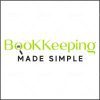As a small business owner, you understand that taxes are an integral part of running your business. Unfortunately, as the tax season approaches, things can get a bit hectic. One of the most significant concerns during tax season is dealing with 1099 forms. Every business owner who has paid a contractor or freelancer more than $600 during the year needs to complete a 1099 form. If your business uses Venmo or PayPal as a payment gateway, you might be wondering how the 1099K applies to your transactions. In this blog post, we’ll explain everything small business owners need to know about Venmo and PayPal 1099K implementation.
What is a 1099 form?
A 1099 form is an IRS tax form used to report earnings outside of a payroll system. As a small business owner, potential 1099 recipient types include independent contractors, freelancers, and service providers. By completing the 1099 form, you inform the IRS and the person receiving the payment of the earnings they must report when it comes to filing their taxes. Failure to send 1099 forms, when necessary, could lead to penalties.
What is the difference between a 1099-K and a 1099-NEC?
The 1099-NEC form is used to report payments to contractors and freelancers who were paid more than $600 for their services in a given year. In comparison, the 1099K form is a newer form used exclusively for third-party payment processors such as PayPal and Venmo. It reports the total payment volume received by a merchant during the year through the payment gateway and excludes any refunds or purchases that vendors receive outside of the payment gateway.
How do Venmo and PayPal handle the 1099K?
As an online payment processor, Venmo and PayPal must comply with IRS 1099K regulations. PayPal and Venmo send a 1099K to merchants who have received more than $20,000 and have completed more than 200 transactions in a calendar year. PayPal and Venmo report the gross payments they processed on behalf of merchants, excluding any refunds, chargebacks, or shipping and handling fees.
What do small business owners need to do about the 1099K?
If you have used Venmo or PayPal for business transactions, it’s essential to keep track of your taxable payments through the platforms. It’s vital to monitor your payments-earned reports and reconcile the numbers in the 1099K form. Review the data regularly to ensure transactions reported in the 1099K match your financial records. Any discrepancy will lead to questions from the IRS during an audit. You also need to make sure you provide a 1099-NEC form to contractors or freelancers who have received payments of more than $600 outside of Venmo or PayPal.
Why is there such confusion around 1099s and Venmo?
Venmo is a popular digital wallet. It’s used for both personal and business transactions – and many small business owners don’t set up business Venmo profiles. Furthermore, the regulations and information Venmo and the IRS are putting out can be confusing. If you pay a contractor or gig worker through their PERSONAL Venmo profile, you’ll need to file a 1099-NEC. If you pay them through their BUSINESS Venmo profile (and they should have one set up – it’s a violation of Venmo’s terms and conditions to use a personal profile for business purposes), then no action is needed. Your contractor will get a 1099-K from Venmo.
Handling 1099s can be overwhelming, especially for small business owners who wear many hats. However, staying on top of your transactions and understanding how Venmo and PayPal handle 1099K can help you remain compliant with IRS reporting regulations. Venmo and PayPal’s 1099K implementation strengthens the IRS’s ability to track online payment statistics, provides transparency to vendors, and helps reduce illegal business activities. As a small business owner, it’s imperative to reach out to tax professionals if you’re uncertain about tax regulations. This will ensure you accurately file your taxes and avoid penalties.
Give us a call today at 801-692-0032 or schedule an initial assessment with us at https://MySimpleBookkeeping.com/contact if you need further help with your 1099s for the 2023 tax year. Hurry, time is limited! The deadline for 1099s is Jan 31, so get your appointment now!
